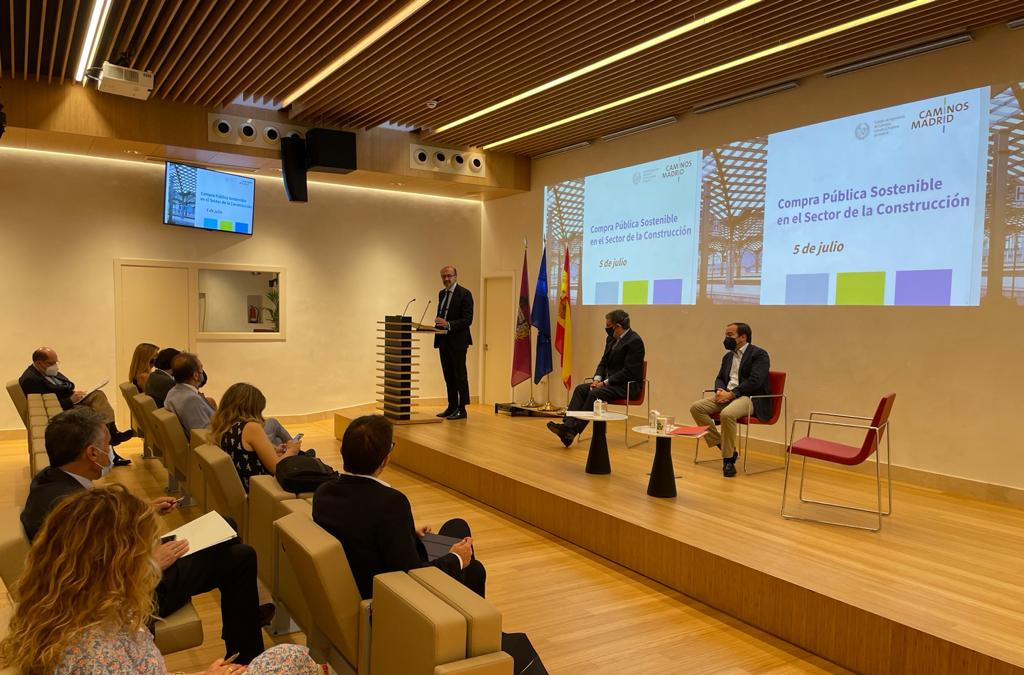A solid action plan, articulated in four phases, focused on prioritizing sectors of activity, adopting a long-term approach, evolving the capacities of the public sector and establishing a comprehensive government model, would be key when leading the commitment from Spain for sustainable public procurement, according to the study ‘Sustainable public procurement in the construction sector: From concept to action’, presented today by Oficemen and Roland Berger at the College of Civil Engineers of Madrid. In the presentation, the dean of the professional college, Rafael Magro, stressed that “sustainability must be the central axis of all projects to build only resilient infrastructures”.
Although there are numerous publications on the technical and legal inclusion of sustainability criteria in public procurement processes, the reality is that their implementation is limited among EU members. In this sense, the study affects which sectors such as construction or IT are key to achieving sustainable development goals, mainly due to the high public spending and impacts they represent, which should therefore be prioritized. In fact, in Spain, the Ecological Public Procurement Plan published in 2019 already recognizes construction as a priority sector. This should go hand in hand with a life cycle cost approach complemented by criteria and incentives related to environmental and social aspects.
To do this, the study focuses on aspects of improvement, such as the adaptation of the purchasing processes to the new LCC (Life Cycle Costing) tools, accompanied by training programs that allow public sector employees to maximize a truly effective incorporation of the criteria. sustainability in the bidding procedures, with a monitoring system that incorporates specific KPIs that allow the success of the initiative to be measured on a global scale on an equal footing.
The study also concludes that taking into account criteria of environmental, social and economic sustainability in the public purchase of infrastructure, allows optimizing the budget allocation and reducing impacts, two variables that would allow public procurement in the construction sector to be aligned with the priorities set by the EU.
The presentation of the study was attended by Antonio Burgueño, president of the CEN TC 350 WG5: Sustainability in Civil Engineering Works, who highlighted in his keynote presentation the importance of using a life cycle approach in purchasing criteria green public.
On his part, Gonzalo Fernández, from the Working Group on the Environment, Climate Change and Sustainability of the Demarcation of the Colegio de Caminos de Madrid has presented different initiatives carried out to assess sustainability in contracts and tenders; and some real cases of hiring.
The study was presented at an event held in collaboration with the Madrid demarcation of the College of Civil Engineers, Canals and Ports, in which the dean of the Madrid Demarcation of the CICCP, Rafael Magro; the delegate of the Government Area for the Environment and Mobility of the Madrid City Council, Borja Carabante; the president of the Madrid World Capital Engineering, Construction and Architecture Association (MWCC), David García Núñez; the technical director of Seopan and managing director of the Construction Technology Platform (PTEC), Carlos Martínez; and the director of the Innovation Area of the Spanish Institute of Cement and its Applications (IECA), César Bartolomé.
You can download the full study here.


